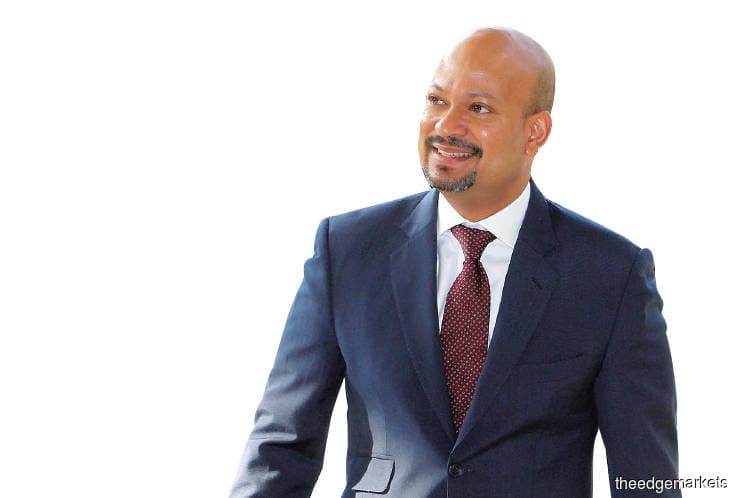
This article first appeared in The Edge Financial Daily on November 19, 2019
KUALA LUMPUR: The prosecution has given a notice of having co-accused and former 1Malaysia Development Bhd (1MDB) chief executive officer (CEO) Arul Kanda Kandasamy as a witness for the prosecution’s case against former premier Datuk Seri Najib Razak in the 1MDB audit report tampering trial.
Senior Deputy Public Prosecutor Datuk Seri Gopal Sri Ram, in his opening statement yesterday, said he is duty-bound to inform the court that the public prosecutor will apply in writing under Section 63 of the Malaysian Anti-Corruption Commission (MACC) Act 2009 to call Arul Kanda to give evidence on the prosecution’s behalf.
“We will be addressing the court on this part of the case at the appropriate stage,” he said.
This surprised Arul Kanda’s counsel Datuk N Sivananthan. The lawyer said he would address the matter at an appropriate time.
Najib’s counsel Tan Sri Muhammad Shafee Abdullah said he would be making a submission on this matter and raised the constitutionality of Section 63.
Section 63 of the MACC Act stipulates whenever two or more persons are charged with an offence under the act, the court may, on an application in writing by the public prosecutor, require one or more of them to give evidence as a witness or witnesses for the prosecution.
Those refusing to give a sworn or affirmed answer will be dealt with in the same manner as witnesses refusing by law.
Witnesses giving their true and full discovery of all things are entitled to receive a certificate of indemnity which shall be a bar to all legal proceedings against them in respect of all such things.
Sivananthan, when met by reporters, described this revelation as “a bombshell” to the defence, as they only found out about it yesterday.
“This is the first case where such a provision is being used (a co-accused asked to testify for the prosecution). I have not come across any case utilising Section 63 of the MACC Act.
“After my client gives his testimony, I will move this court to release him of the [abetting] charge,” he said.
He then explained the section stipulates the judge may allow the prosecution to take on Arul Kanda when the prosecution applies to do so. However, the judge has the discretion to say no.
“Our position is this: If the court were to allow, at the conclusion of his (Arul Kanda’s) evidence, the charge must be withdrawn against him because obviously you can’t enter a defence on your evidence against yourself,” said Sivananthan.